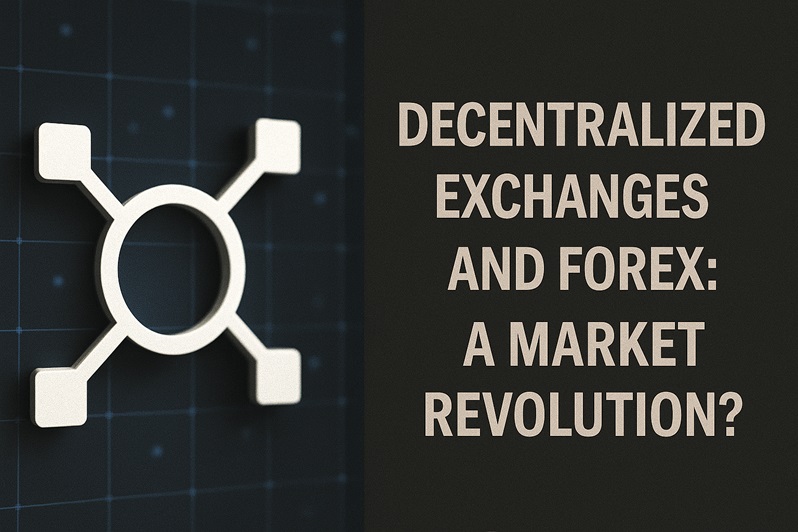
The rise of decentralized exchanges (DEXs) has transformed the crypto landscape by offering peer-to-peer trading without intermediaries. While this shift is most prominent in digital asset markets, it has sparked an intriguing question: can the DEX model be applied to the world of Forex trading? With growing interest in decentralized finance (DeFi) and blockchain transparency, some believe that Forex could be next in line for disruption. Exploring this potential crossover may uncover a new era of financial accessibility and innovation.
How Decentralized Exchanges Work
Decentralized exchanges function by allowing users to trade assets directly from their wallets using smart contracts, bypassing centralized intermediaries. These platforms are powered by blockchain technology and operate autonomously through automated market makers (AMMs) or order book systems. DEXs are known for their transparency, reduced fees, and censorship resistance.
In contrast, traditional Forex trading is heavily reliant on centralized brokers, banks, and regulatory frameworks. Trades are executed through platforms that require account verification, custodianship, and trust in institutional structures. While efficient, this model creates barriers for some traders—particularly in underserved regions or those seeking greater financial sovereignty.
The Case for Decentralizing Forex Trading
Applying the DEX model to Forex could unlock numerous advantages. Removing centralized intermediaries would lower transaction costs and improve market accessibility. Peer-to-peer trading of fiat-pegged stablecoins or synthetic currencies could allow 24/7 Forex-like trading without the need for traditional brokers.
Moreover, blockchain-based trading could enhance transparency in price discovery and order execution. Trustless systems reduce the need for oversight, minimizing the risks of manipulation and front-running. For traders accustomed to slippage and inconsistent spreads in centralized environments, a decentralized alternative may offer greater fairness and control.
However, challenges remain. Forex is deeply regulated and integrated into national economies. Introducing decentralized mechanisms would require regulatory evolution, improved stablecoin infrastructure, and institutional adoption. Scalability and liquidity are also key hurdles that DEXs must overcome before rivaling the execution efficiency of major Forex platforms.
Bridging the Gap: Hybrid Models and Future Outlook
While fully decentralized Forex trading may still be a vision for the future, hybrid models are already emerging. Platforms offering synthetic Forex pairs on blockchain networks, or centralized exchanges integrating DeFi protocols, are blending the strengths of both worlds. These innovations point toward a future where traditional and decentralized finance intersect more seamlessly.
As blockchain technology matures and regulators adapt to new frameworks, the potential for DEX-based Forex markets becomes more realistic. Forward-thinking traders and institutions are watching closely, recognizing that decentralization isn’t just a trend—it could be a catalyst for the next major shift in global finance.
Conclusion
Decentralized exchanges have already revolutionized crypto trading, and their potential influence on Forex cannot be ignored. While regulatory, technological, and liquidity challenges remain, the idea of decentralized Forex markets is gaining momentum. Traders who understand this evolving dynamic will be better prepared for the innovations reshaping the way we interact with global markets.
FAQs
Can Forex be traded on decentralized exchanges?
Yes, some platforms offer synthetic Forex pairs using stablecoins and DeFi protocols, though it’s still a developing niche.
What are the advantages of DEXs over traditional Forex brokers?
DEXs provide peer-to-peer trading, lower fees, increased transparency, and no account verification requirements.
Are there risks in decentralized Forex trading?
Yes, risks include smart contract vulnerabilities, liquidity limitations, and lack of regulatory protection.
Will decentralized Forex trading replace brokers?
Not in the near term, but hybrid models could coexist, offering both decentralized and regulated options.
Is decentralized Forex trading legal?
Regulations vary by jurisdiction. Always check local laws before using DeFi platforms for Forex-like trading.
